Key Takeaways
- Rodents cause damage and spread diseases like Hantavirus and Salmonella.
- Seal entry points, store food properly, and reduce clutter to prevent infestations.
- Use traps, bait, or professional help for effective rodent control.
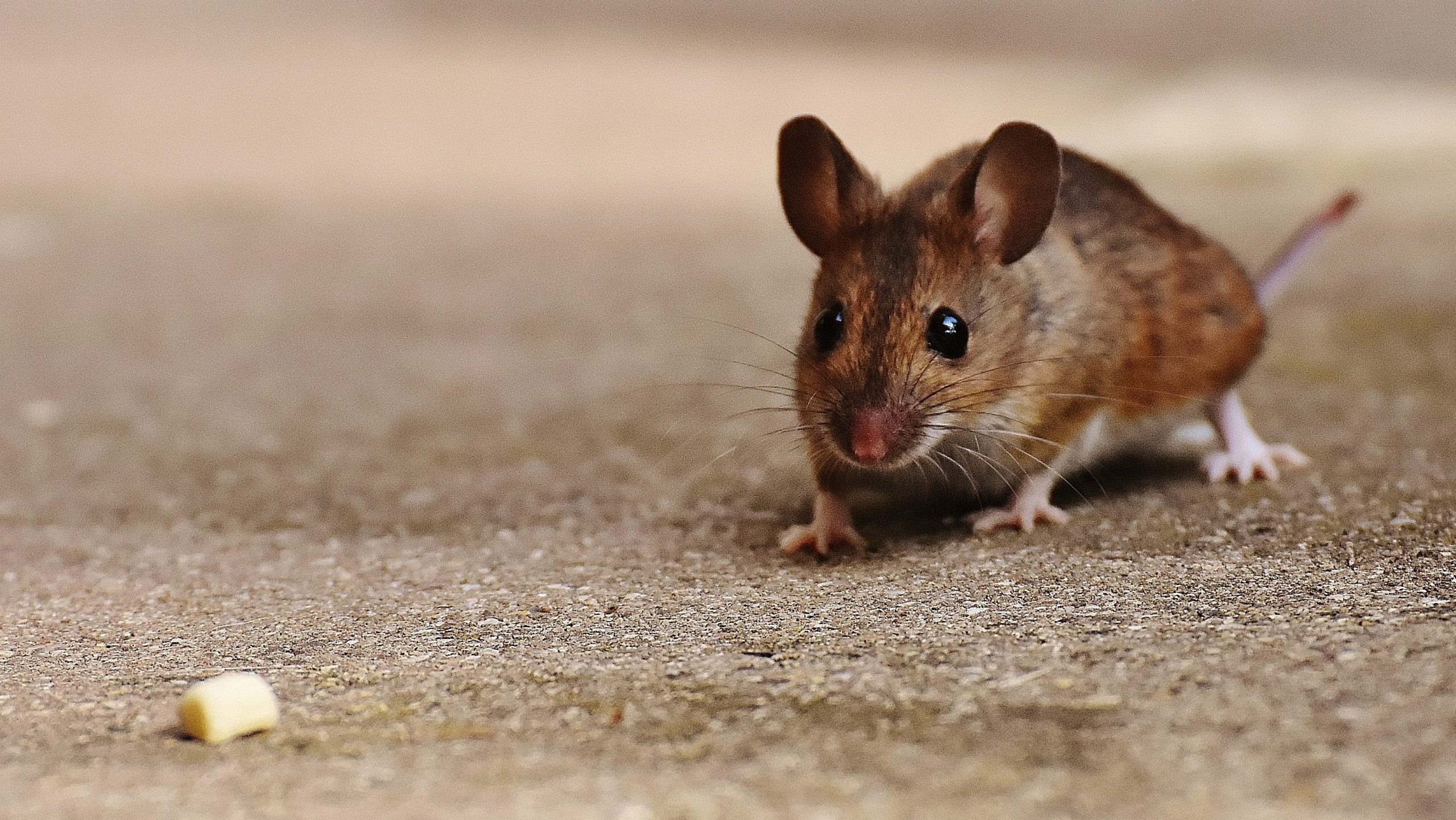 Did you know rodents make up nearly 40% of all mammal species on Earth? Their ability to gnaw through almost anything, from wood to electrical wiring, makes them one of the most common pests in homes and businesses. A rodent infestation can cause significant property damage, pose health risks, and disrupt daily life.
In this blog, we will take a look at the key signs of a rodent infestation, how to identify common rodent species, and the most effective methods to control and eliminate them.
If you’re dealing with a rodent infestation, our professional pest control services provides the right solutions to protect your home. Get a Free Pest Control Estimate for long lasting protection from rodents.
Did you know rodents make up nearly 40% of all mammal species on Earth? Their ability to gnaw through almost anything, from wood to electrical wiring, makes them one of the most common pests in homes and businesses. A rodent infestation can cause significant property damage, pose health risks, and disrupt daily life.
In this blog, we will take a look at the key signs of a rodent infestation, how to identify common rodent species, and the most effective methods to control and eliminate them.
If you’re dealing with a rodent infestation, our professional pest control services provides the right solutions to protect your home. Get a Free Pest Control Estimate for long lasting protection from rodents.
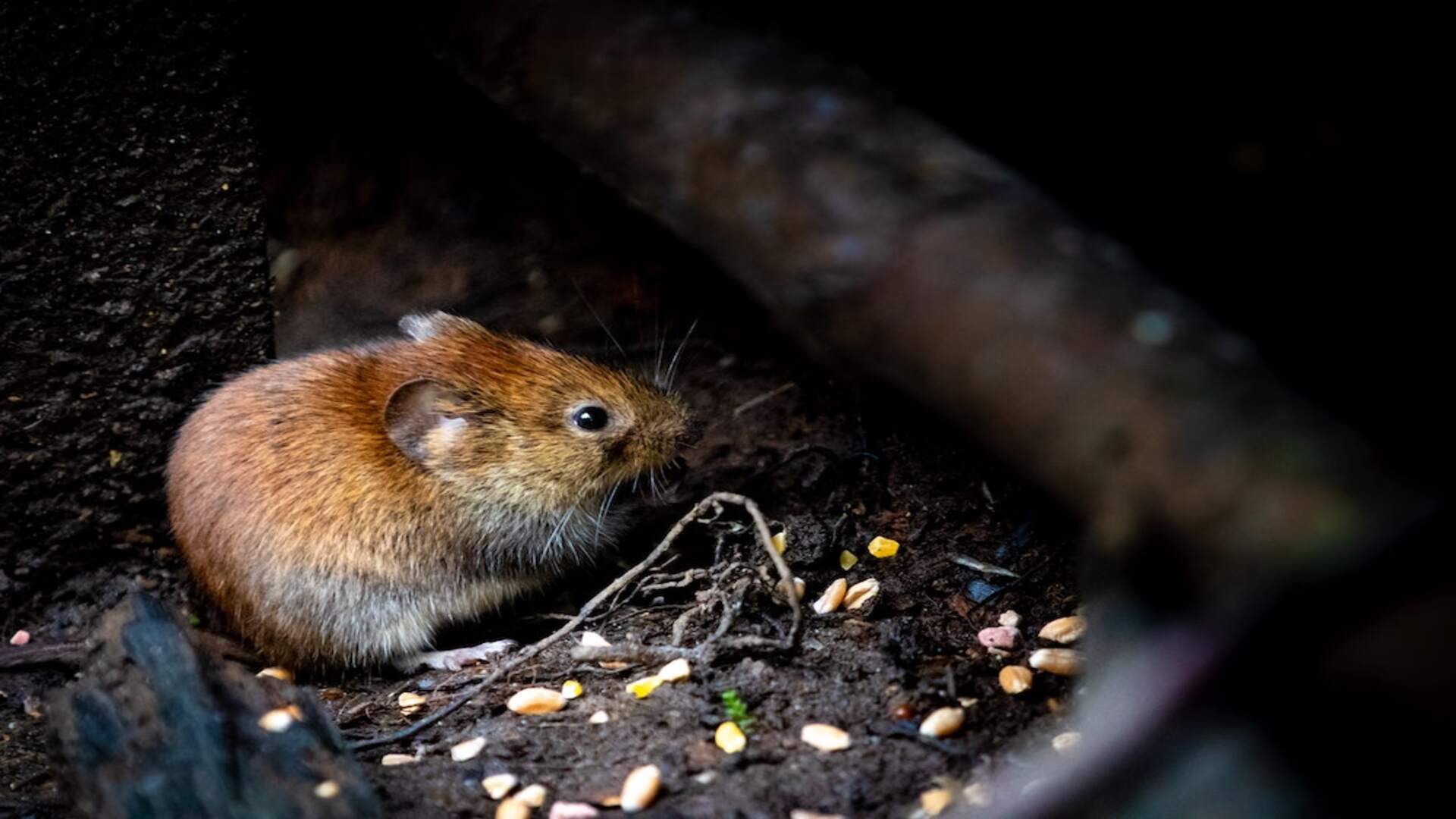

Not getting a solution?
Get your free pest control estimate today!What are the Signs of Rodent Infestation?
Rodents are nocturnal and often stay hidden, making it difficult to detect their presence. However, they leave behind distinct clues that signal an infestation. Recognizing these signs early can quickly prevent the problem from worsening. Here are the key indicators of a rodent infestation: Droppings Presence of droppings is one of the most noticeable signs of a rodent problem. Mouse droppings are small, dark, and shaped like rice grains, while rat droppings are larger and often found in clusters. Droppings are commonly found in kitchens, pantries, and cabinets where rodents search for food. Gnaw Marks Rodents constantly gnaw on hard surfaces to maintain their ever-growing teeth. Bite marks on furniture, wooden items, and walls indicate their presence. Chewed electrical wires are another serious concern, as they pose a fire hazard. Rodents may also gnaw through food packaging or containers in search of a meal. Nesting Materials Rodents build nests using shredded paper, fabric, and insulation, often in hidden areas like attics, basements, and wall voids. These nests provide shelter for breeding and protection from predators. If you notice piles of shredded materials in storage areas or behind appliances, it could be a sign of nesting activity. Scurrying Noises If you hear scratching, rustling, or quick, scurrying sounds at night, rodents may be moving inside your walls, ceilings, or attics. These nocturnal creatures are most active after dark, and their movements often create audible disturbances. Listening carefully during the night can help you detect their presence. Urine Smells Rodent urine has a distinct, musky odor that becomes more noticeable in enclosed areas like basements, kitchens, and under sinks. Rodents often leave grease marks along walls or baseboards as they repeatedly travel along the same paths. If you detect a strong, musty smell paired with visible grease marks, you may have a rodent infestation. Sightings Spotting a live or dead rodent is one of the most obvious signs of an infestation. Rodents are social creatures and breed rapidly, so if you see one, more are likely nearby. Regular sightings of live rodents or discovering dead ones in traps clearly indicate that you need to take immediate action to control the infestation. Explore our Rodent Control Services and DIY Guide to manage and eliminate infestations effectively.How to Identify Common Rodents?
Mice and rats are the two most common rodents that invade homes. While they may seem similar at first glance, each has distinct characteristics that affect how they behave, where they nest, and the damage they cause.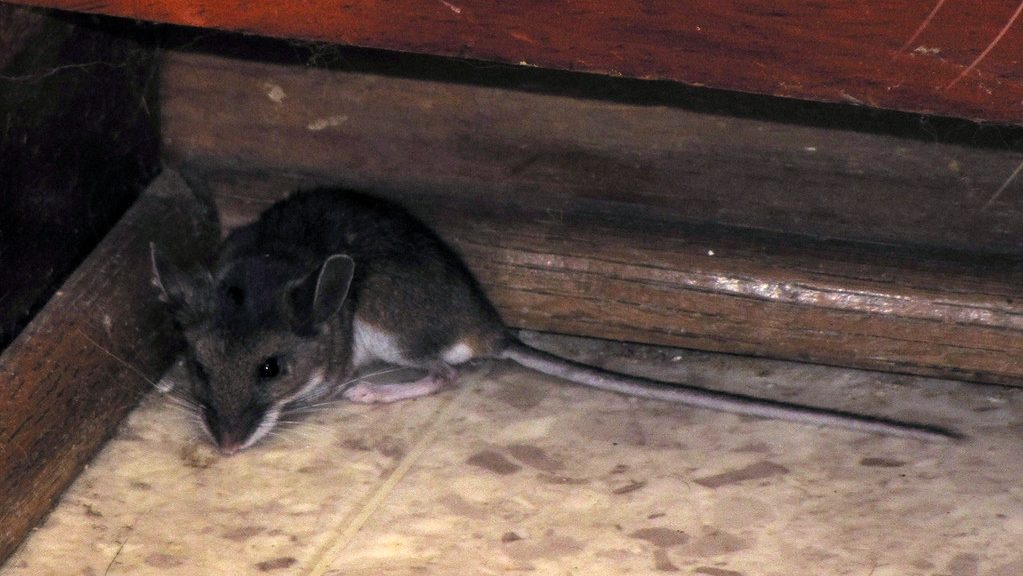 Mice
Mice are one of the most common rodents found in homes. Their small size, agility, and ability to squeeze through tiny openings make them expert invaders. Mice are nocturnal, preferring to explore homes at night while searching for food, water, and shelter.
Mice
Mice are one of the most common rodents found in homes. Their small size, agility, and ability to squeeze through tiny openings make them expert invaders. Mice are nocturnal, preferring to explore homes at night while searching for food, water, and shelter.
Physical Appearance
-
Size: 2.5 to 4 inches in body length with a tail of similar length.
-
Color: Typically brown, gray, or light gray with a lighter belly.
-
Shape: Small, round ears, a pointed nose, and a slender body.
 Rats
Rats are bigger and more aggressive than mice. Known for their strength and adaptability, rats can climb, burrow, and chew through hard materials like wood and plastic. Their size allows them to survive in harsh conditions, making them one of the most persistent household pests.
Rats
Rats are bigger and more aggressive than mice. Known for their strength and adaptability, rats can climb, burrow, and chew through hard materials like wood and plastic. Their size allows them to survive in harsh conditions, making them one of the most persistent household pests.
Physical Appearance
-
Size: 9 to 11 inches in body length, with a long, thick tail.
-
Color: Dark brown or black fur with a lighter belly.
-
Shape: Larger, bulkier body with a blunt nose and smaller ears than mice.
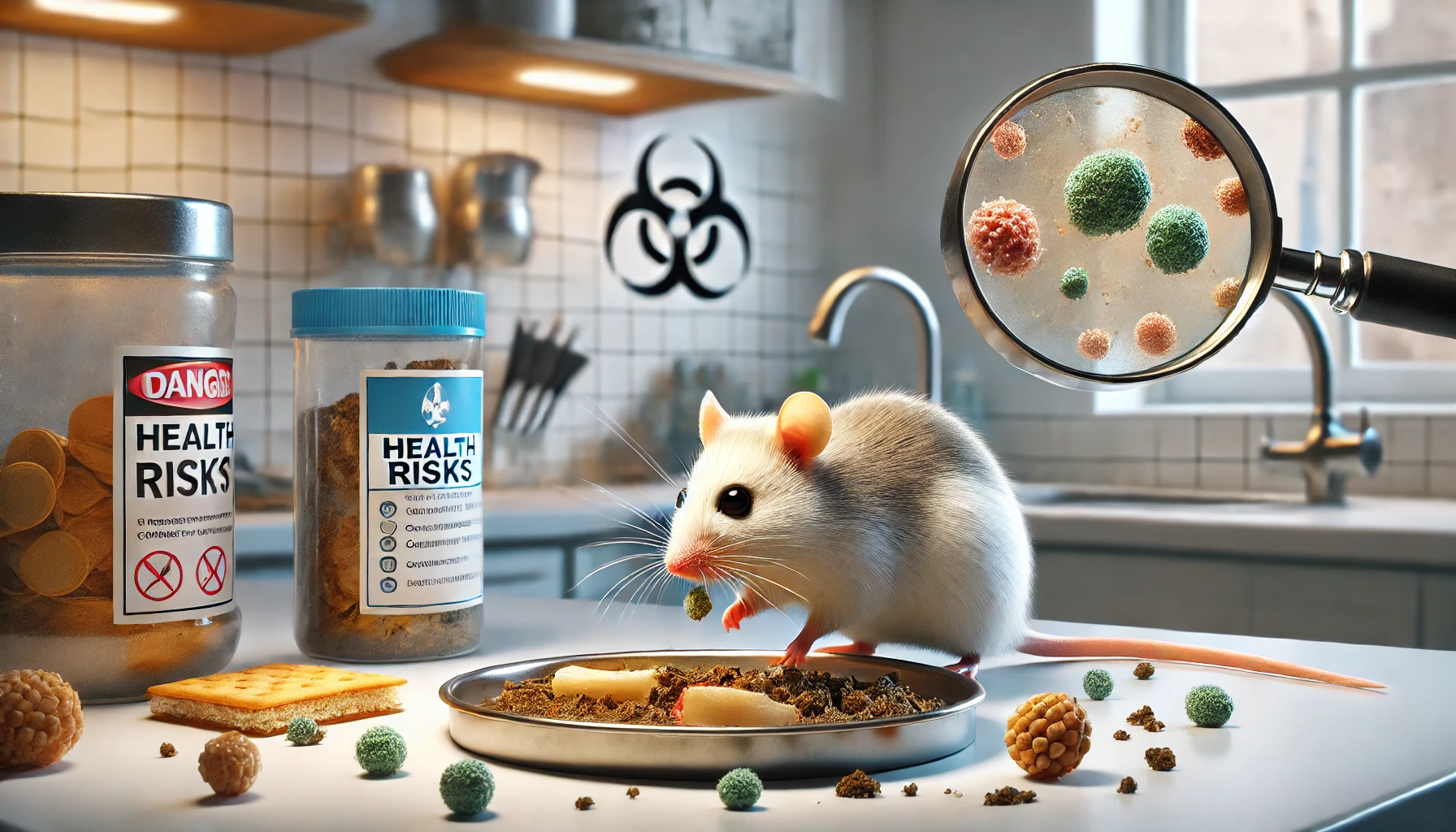
What Health Risks are Caused by Rodents?
Rodents are more than just a nuisance, as they pose serious health risks to humans. Their droppings, urine, saliva, and the parasites they carry can spread dangerous diseases. Here are some of the key health problems associated with rodent infestations: Hantavirus Hantavirus is a potentially deadly virus spread through airborne particles from rodent urine or droppings. Inhaling contaminated dust or debris can lead to severe respiratory illness that requires urgent medical attention. Leptospirosis Leptospirosis, a bacterial infection, is transmitted through contact with rodent urine. If it enters the body through cuts or mucous membranes, it can cause flu-like symptoms and, in severe cases, lead to liver or kidney failure. Salmonella Rodents spread Salmonella bacteria by contaminating food or kitchen surfaces with their droppings. Consuming contaminated food can cause diarrhea, abdominal pain, and severe gastrointestinal distress. Rat-Bite Fever Rat-bite fever is transmitted through rodent bites, scratches, or direct contact with dead rodents. It is caused by Bacteria and its symptoms include fever, vomiting, and rash.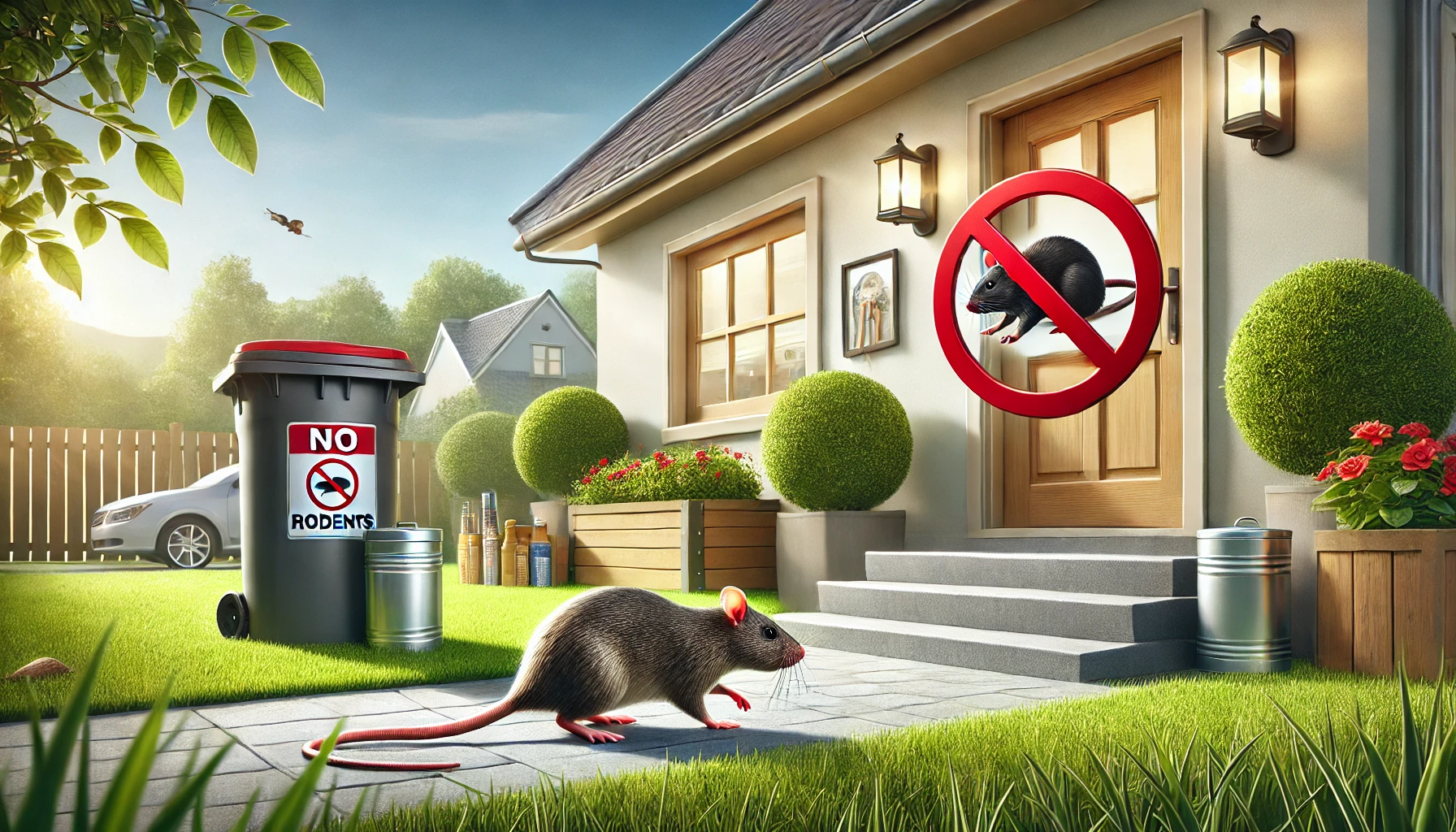
How to Prevent Rodents from Invading Your Home?
Keeping rodents out of your home requires proactive measures to block entry points, eliminate food sources, and reduce potential hiding spots. Here are some simple but effective prevention tips:Rodent Prevention Tips
-
Seal entry points by closing cracks, gaps, and crevices around windows, doors, and foundations using steel wool, caulk, or metal mesh.
-
Store food properly in airtight, rodent-proof containers and clean up food crumbs, spills, and pet food.
-
Declutter storage areas by eliminating cardboard boxes, paper piles, and unnecessary clutter in attics, basements, and storage areas.
-
Maintain your yard by trimming tree branches near your home and storing firewood away from the house to prevent rodent shelters.
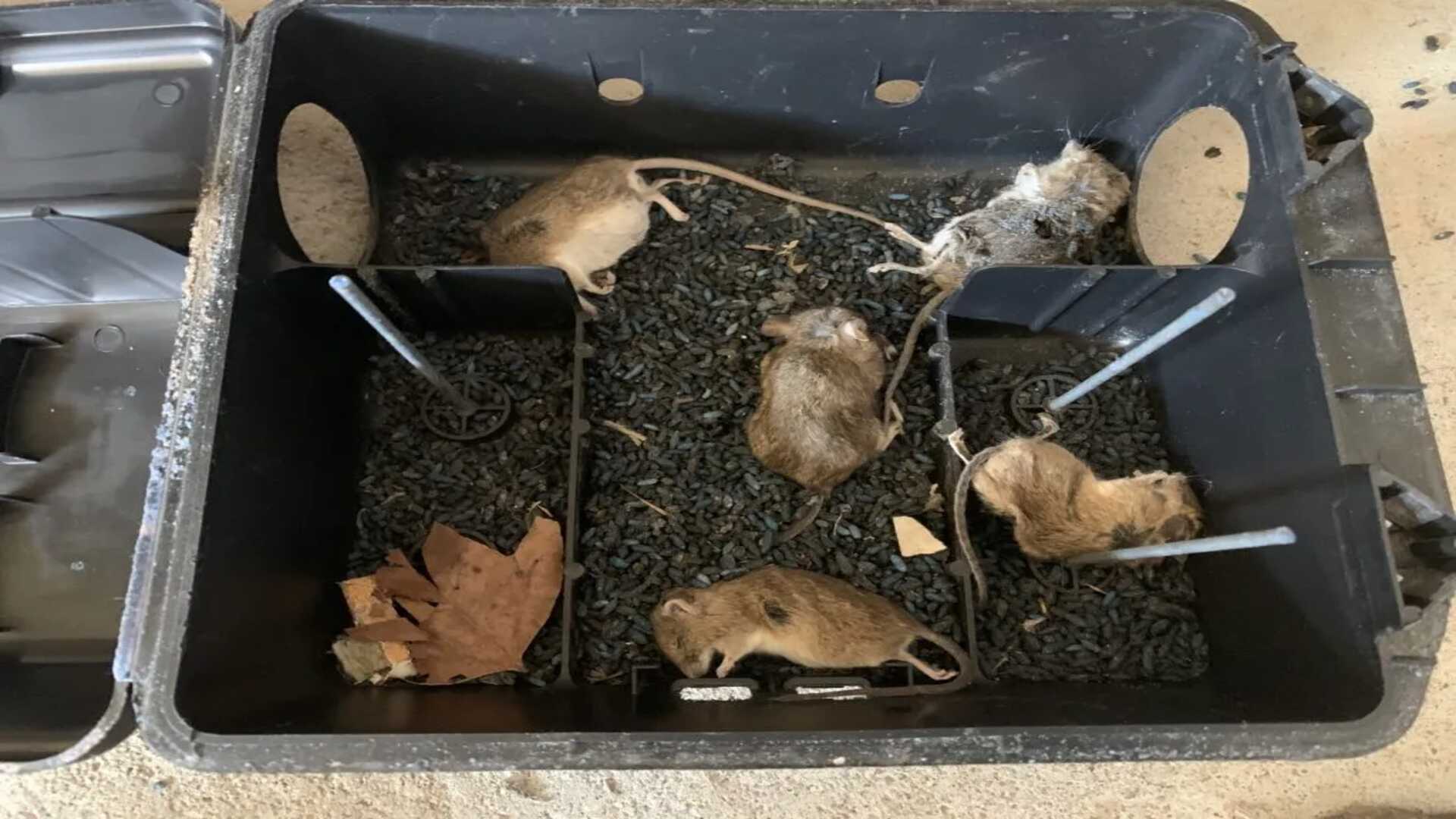
Rodent Control Methods
Controlling rodents requires a mix of trapping, baiting, and professional intervention. Trapping options include snap traps for instant kills, live traps for humane capture, and glue traps, though their use is controversial. Baiting involves tamper-proof bait stations and rodenticides, but caution is needed to avoid accidental exposure to pets or children. Baiting methods involve the use of bait stations and rodenticides. Bait stations are tamper-proof boxes containing poison bait that lures rodents inside. Rodenticides are poisonous baits that rodents ingest, leading to their eventual death. These methods should be used with caution, especially in homes with pets or children, as accidental exposure can be dangerous. Myths and Facts About Rodent Infestations Misconceptions about rodents can make it harder to address an infestation effectively. Being aware of the truth behind these myths helps you take proper action to keep your home rodent-free. Here are some common myths and the facts that debunk them:| Myth | Fact |
|---|---|
| All rodents are dirty and spread diseases. | While some rodents carry diseases, not all are harmful or dirty. |
| You only need to deal with visible rodents. | Rodents often remain hidden, so look for signs like droppings and gnaw marks. |
| Rodents only enter homes in the winter. | Rodents can infest homes year-round if food, shelter, and warmth are available. |
| If you see one rodent, there are probably more. | Seeing one rodent may signal an infestation, but sometimes it could be an isolated case. |
| Natural remedies are as effective as professional pest control. | While some natural remedies help, professional pest control is often required for severe infestations. |





